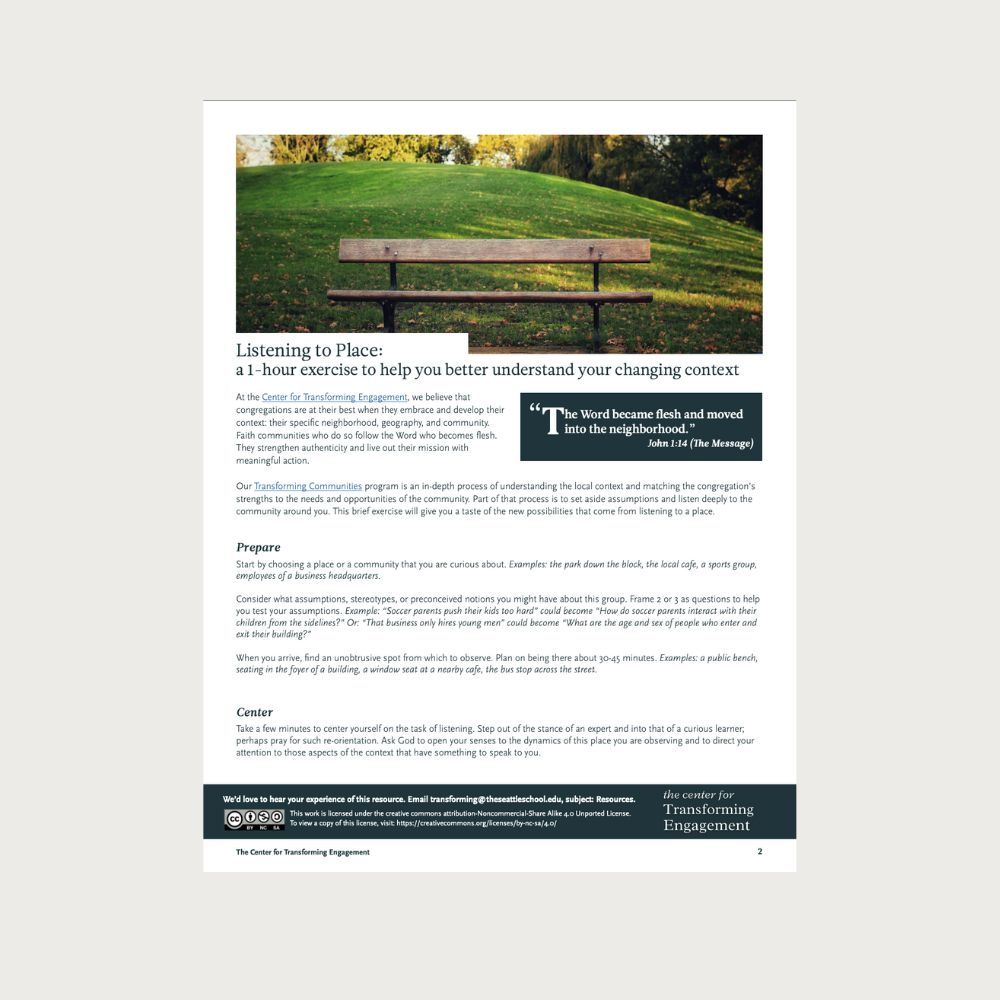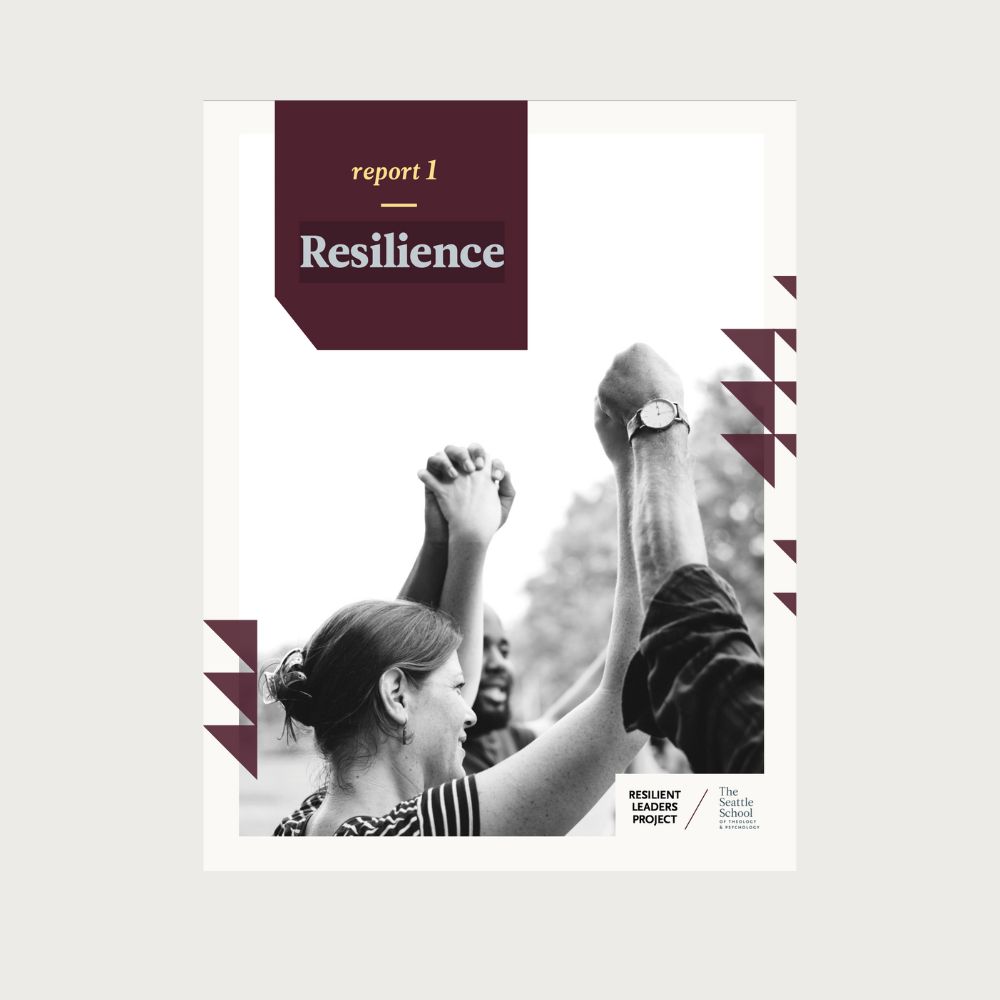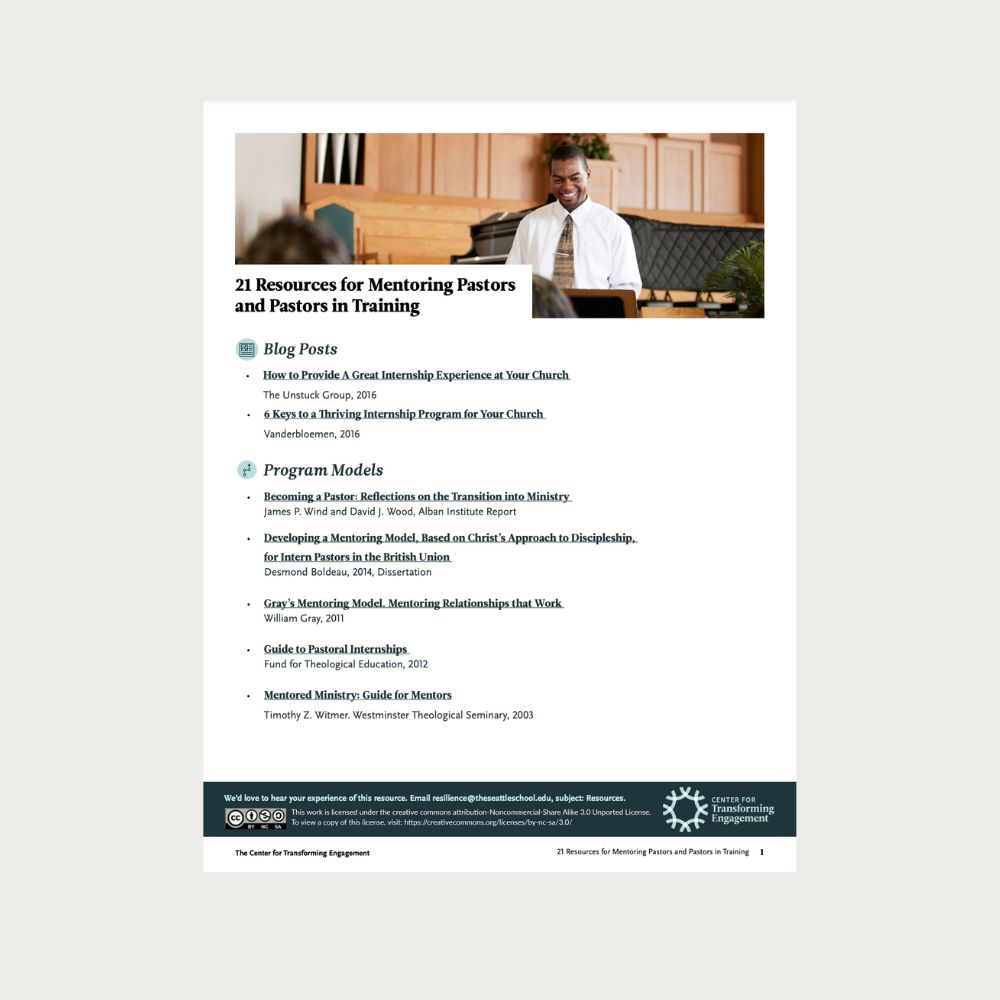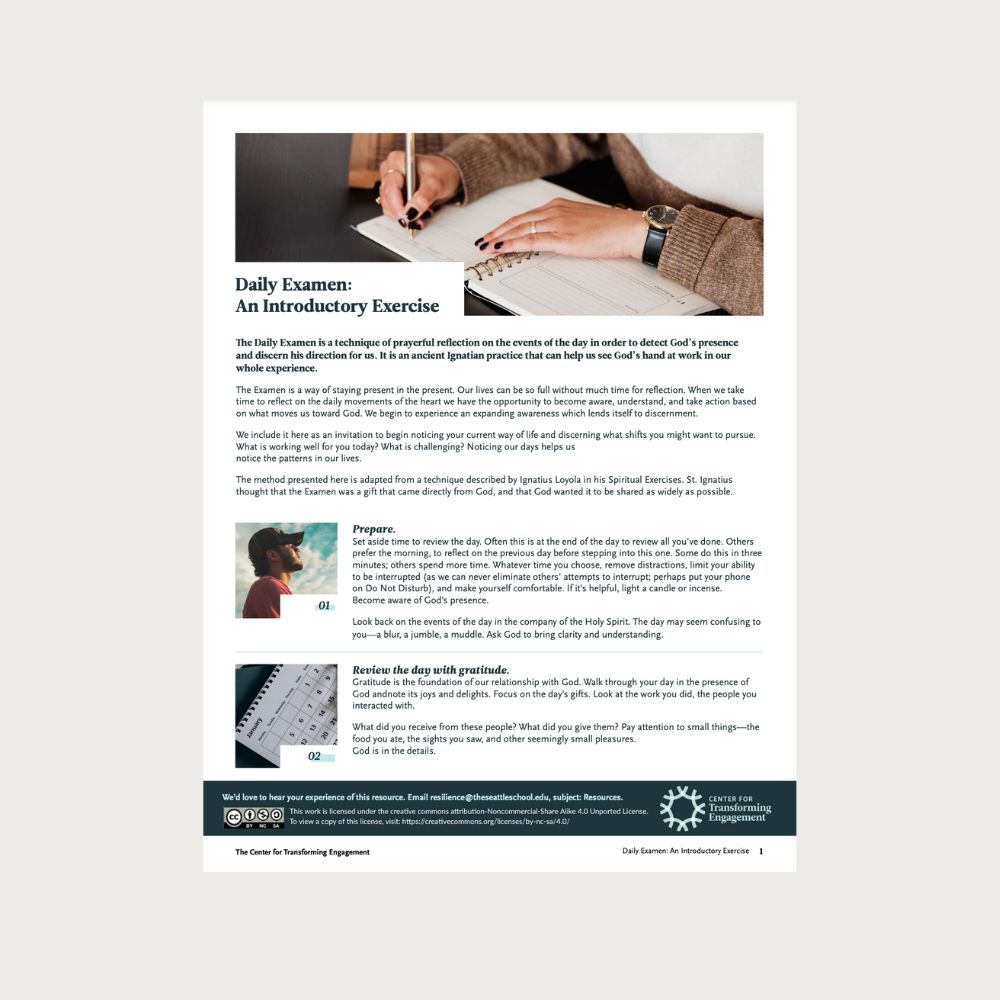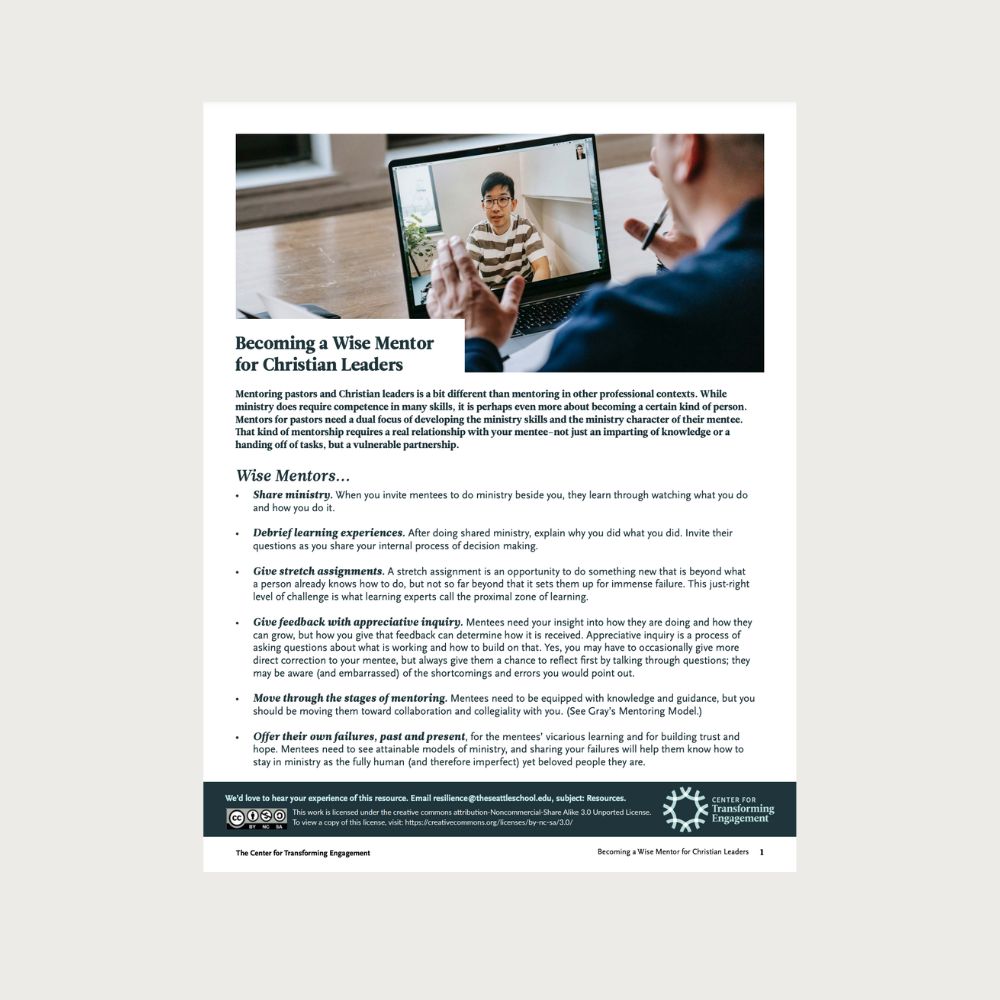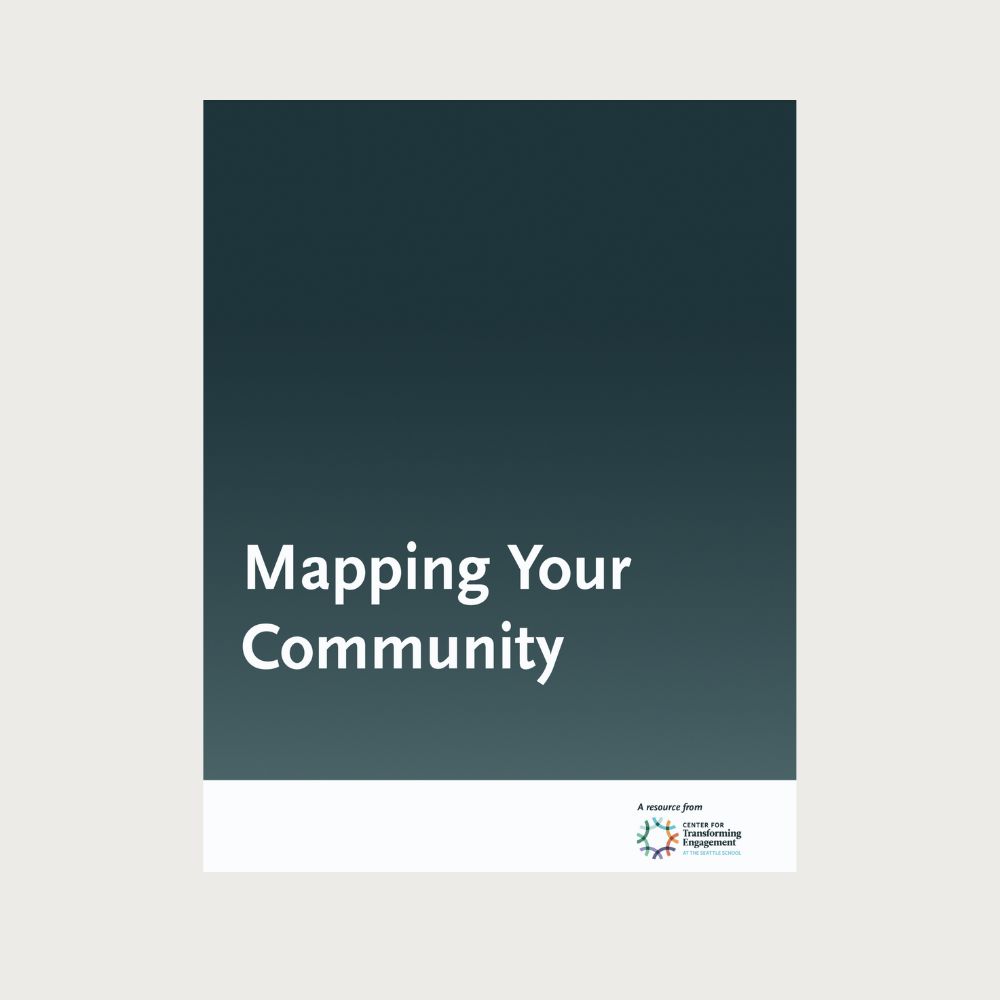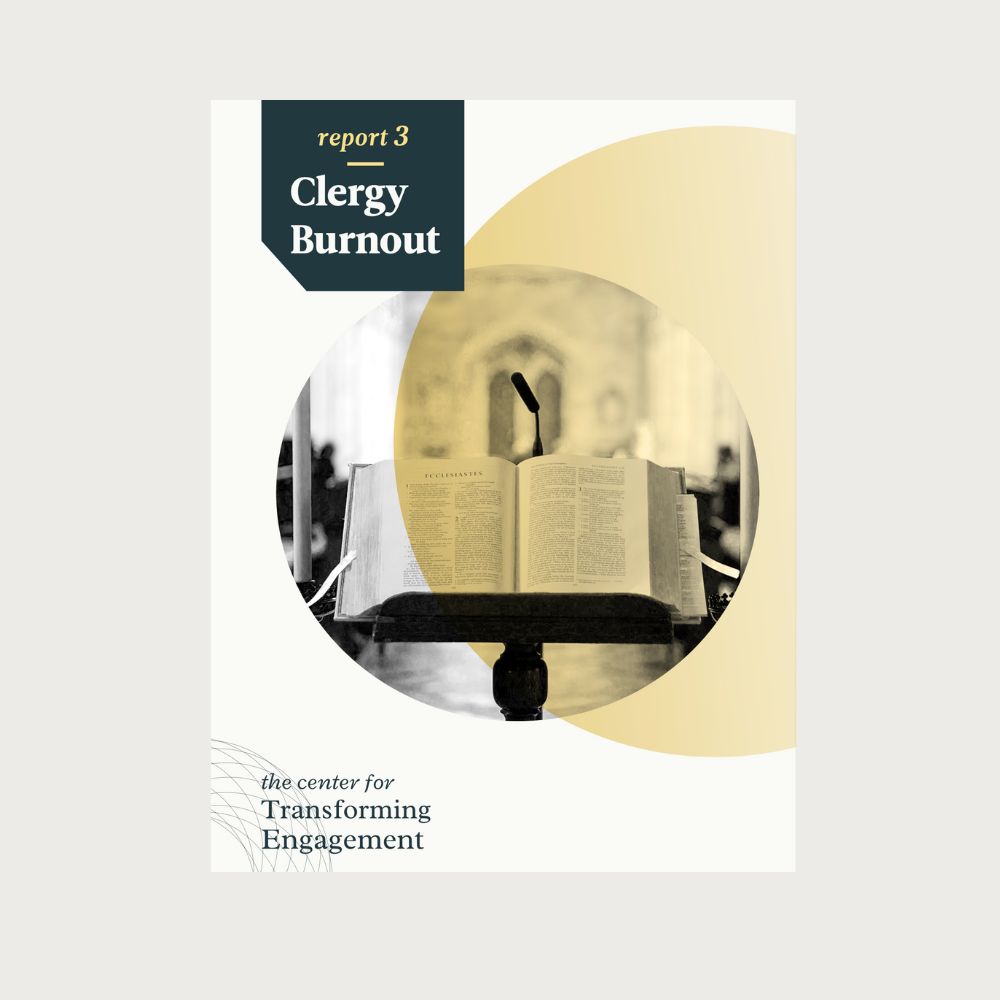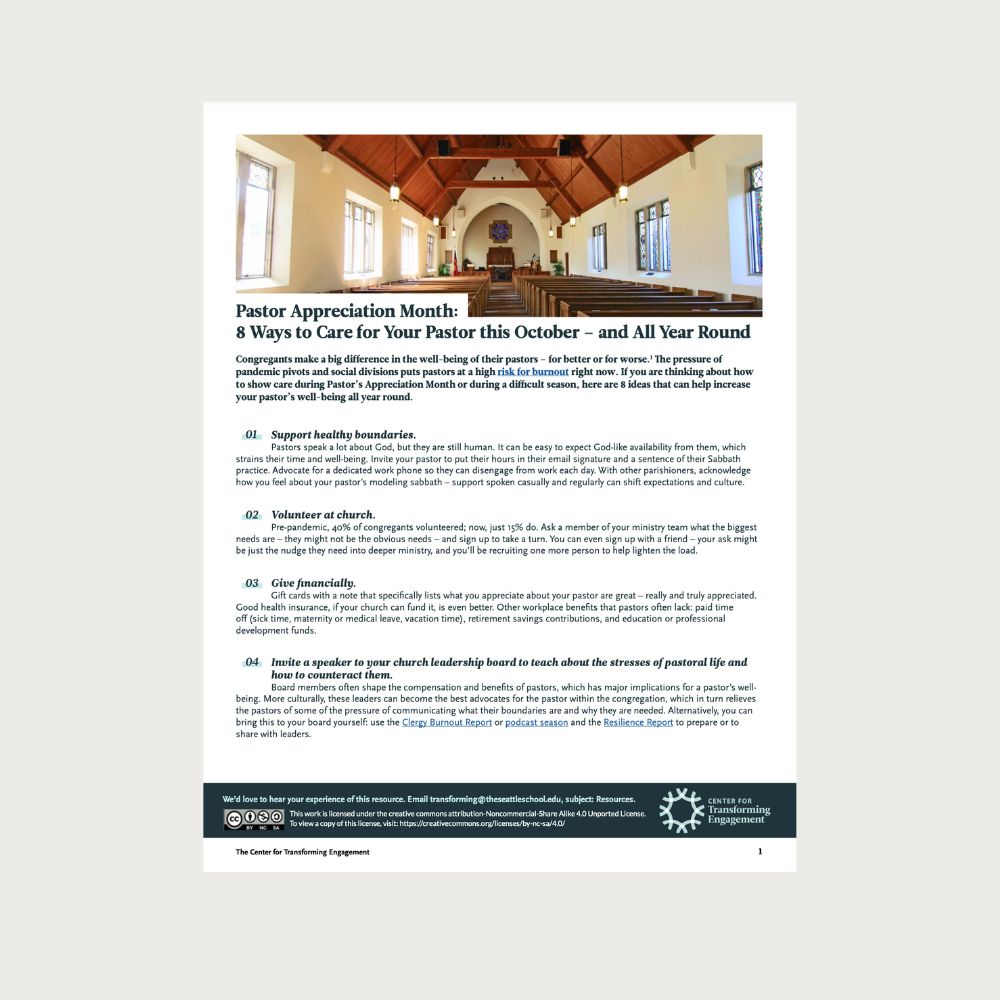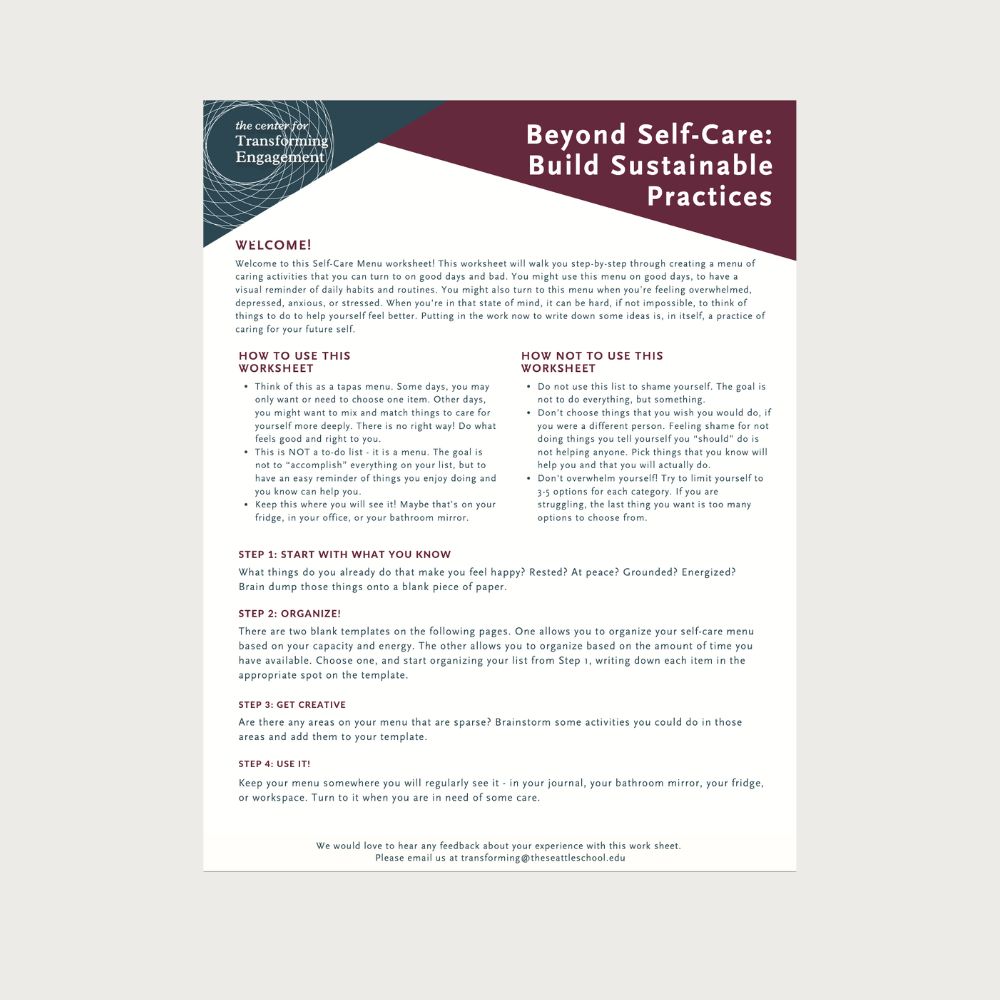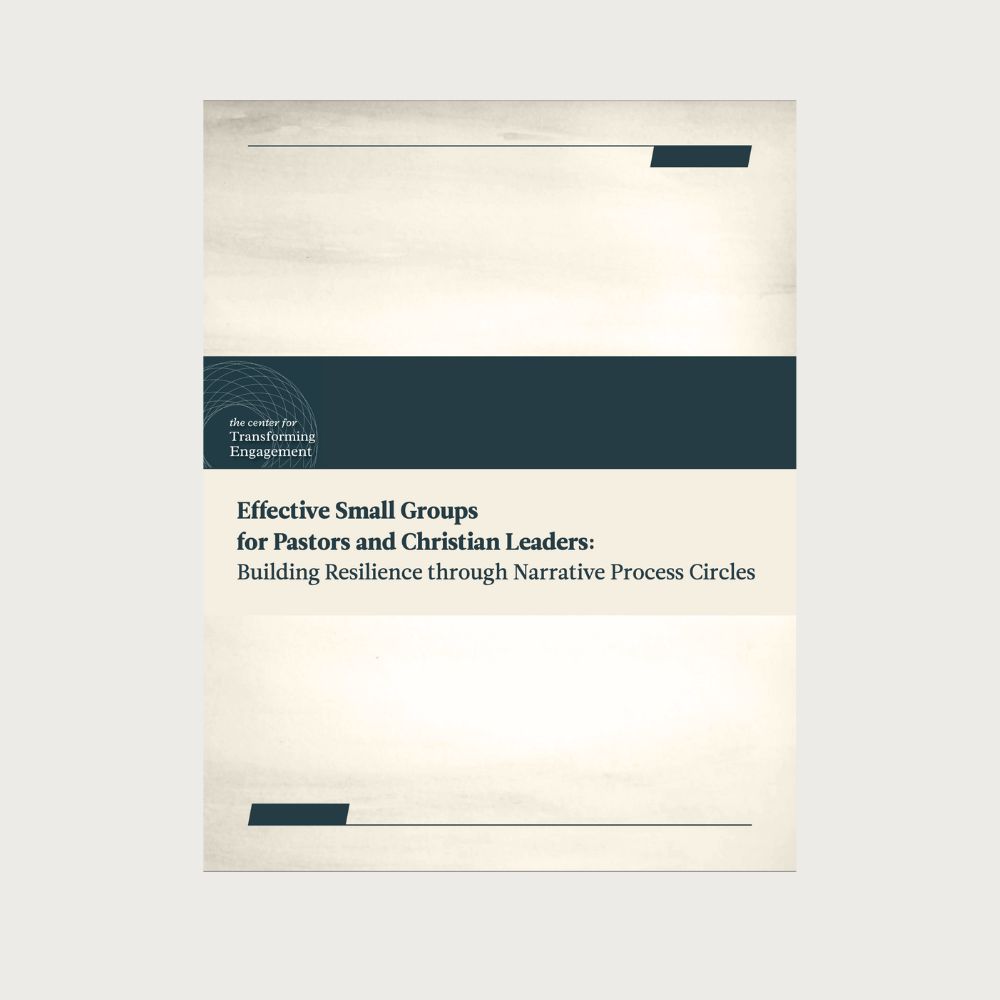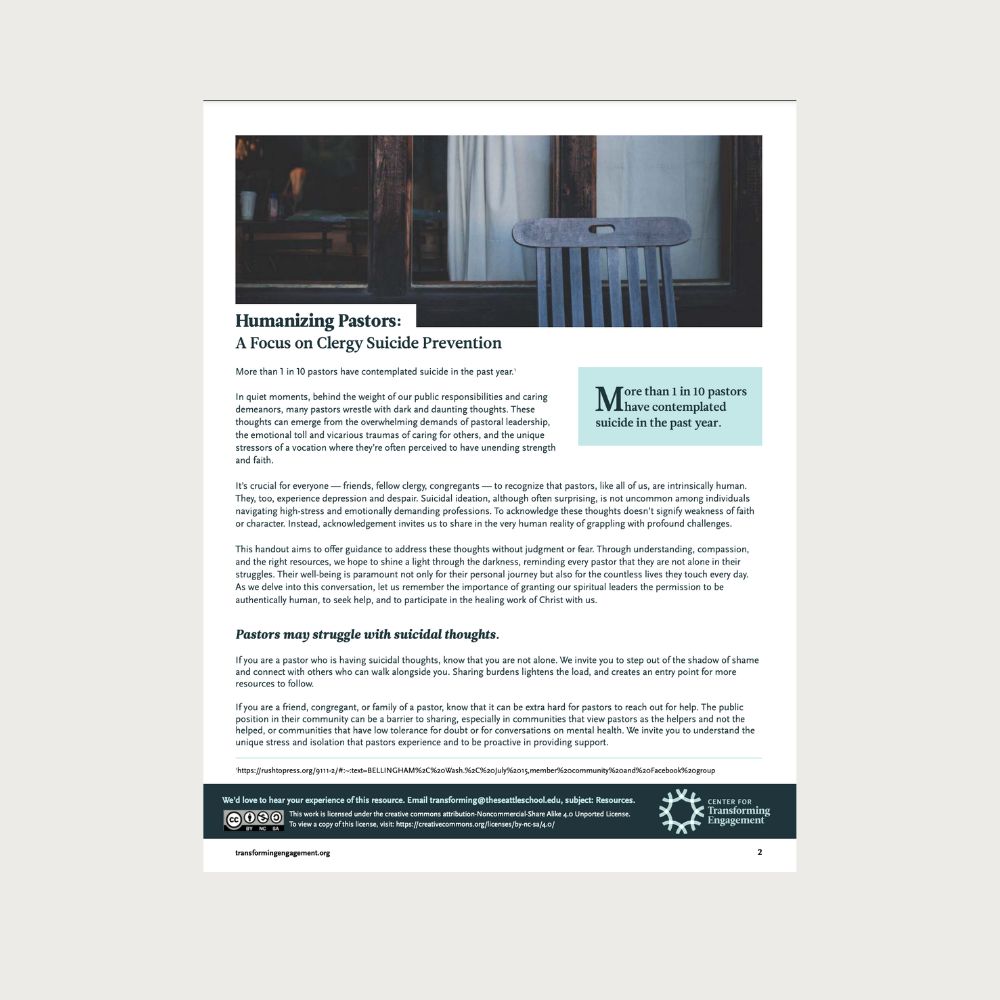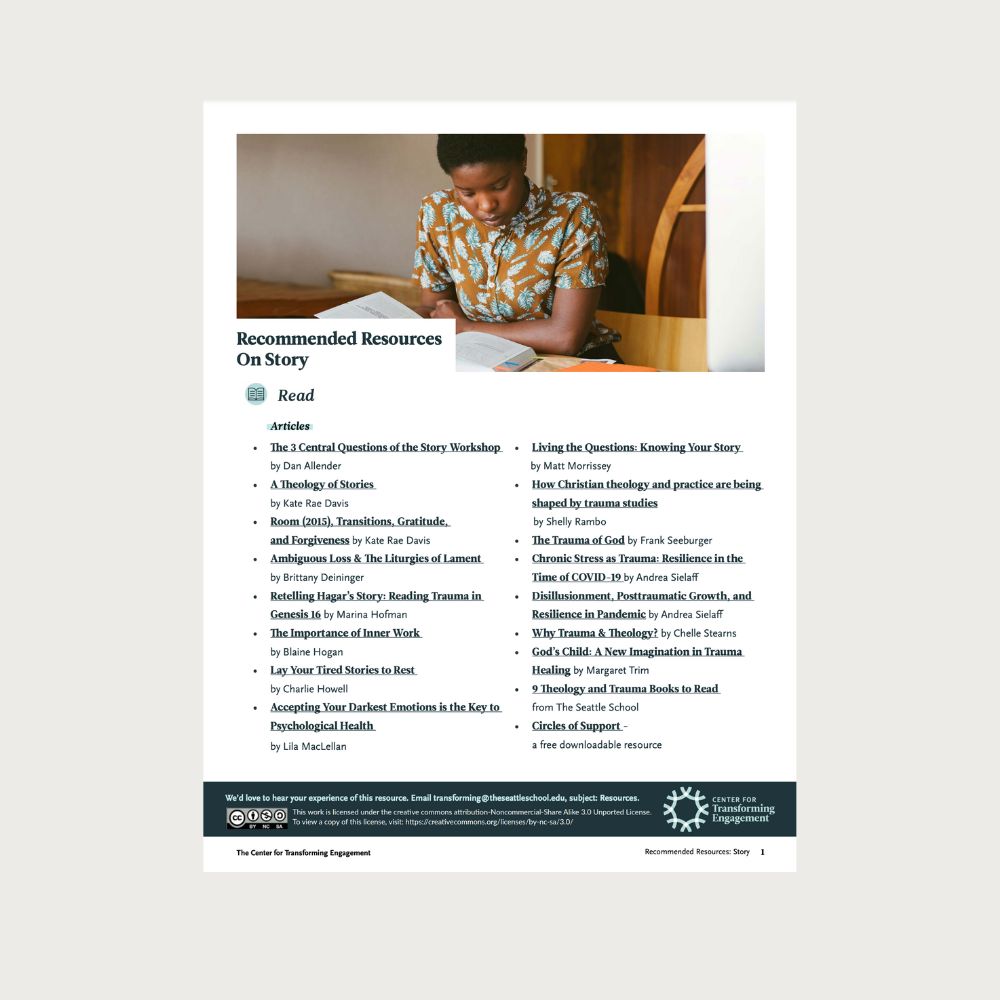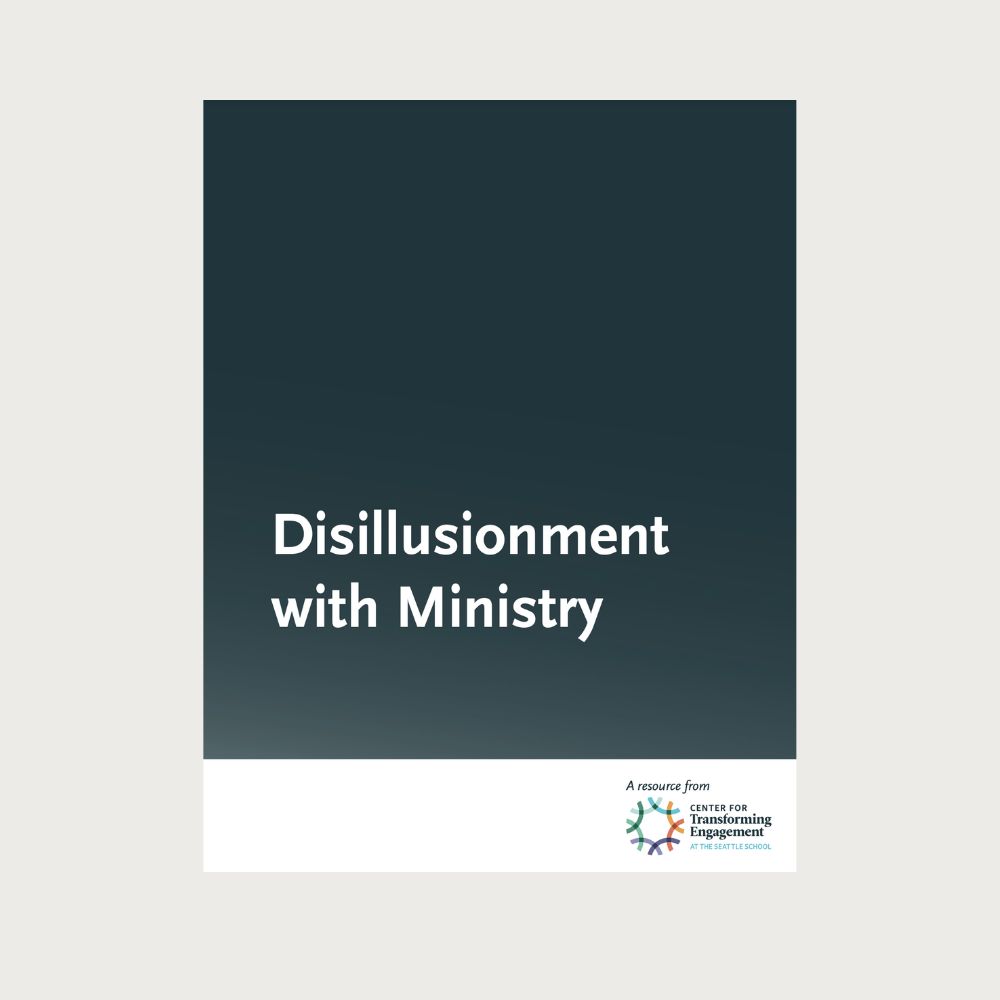Research & Downloads
The Center offers thought-provoking research and practical resources to help you on your journey.
We invite you to download and share these resources.
Listening to Place
This guided resource is designed to help you tune in and connect more deeply with your community. Through simple exercises, you’ll learn to slow down, get curious, and listen more deeply to the world around you.
The Resilience Report
Leaders today must be discerning, responsive, and flexible in order to be able to wisely and creatively face an unknown future. In short: leaders must be resilient. This report includes individual leaders’ stories, findings of our recent Resilience for Sustainable Leadership survey, and a theology of resilience
21 Resources for Mentoring Pastors and Pastors in Training
Are you a faith leader looking to create a mentoring program for your organization? Center staff has complied a list of 21 resouces to help guide you including videos, podcasts, associations, book recommendations, program models and articles.
Daily Examen – an intro exercise
Becoming a Wise Mentor
Mapping your communities
Become More Resilient.
Start with our free Self-Facilitated Resilience Retreat Guides to focus on the three streams of resilience: People, Practices, and Purpose.
This series isn’t just another daily devotional to add to your to-do list. Flexible and self-paced, you can go through these mini-retreats anywhere, any time. You’ll gain fresh insights and practical tools to strengthen your resilience and navigate life’s challenges with confidence.
Start your journey today and see the positive impact on your life and those around you.
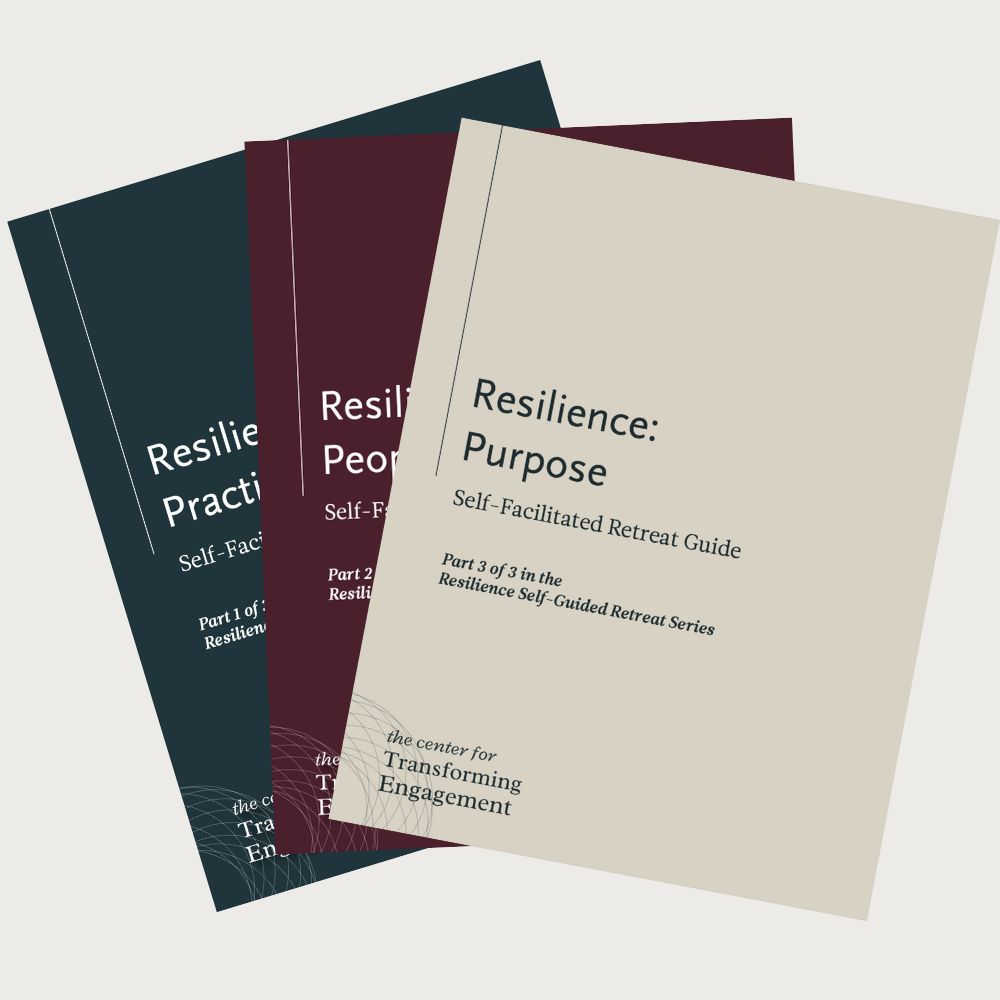
Clergy Burnout
8 Ways to Care for Your Pastor
Beyond Self-Care: Build Sustainable Practices
This worksheet will walk you step-by-step through creating a menu of caring activities that you can turn to on good days and bad. You might use this menu on good days, to have a visual reminder of daily habits and routines. You might also turn to this menu when you’re feeling overwhelmed, depressed, anxious, or stressed.
Building Resilience through Narrative Process Circles
Humanizing Pastors: A Focus on Clergy Suicide Prevention
Recommended Resources on Story
70 percent of what we learn is through stories. We are hard-wired for narrative – it’s how the human brain works, how we make sense of the world and our lives. The Center honors the role of story in gaining health for individuals, organizations and relationships, and offers this curated list of articles, books and podcasts that will help you grow your own capacity for understanding the role of narrative.
Disillusionment with Ministry
Ministry promises so much purpose in life. Whether lay or ordained, ministry leaders draw inspiration from the divine, care for people through their most vulnerable moments, and lead others in the service to God and neighbor. But that promise of purposeful vocation doesn’t always deliver. This paper offers four ways to renew your purpose in the midst of disappointment

